The laws that dictate when and where citizens can carry are always changing. That means it’s up to each of us to stay on top of them and on the right side of the law.
But how do you do that without a fancy law degree?
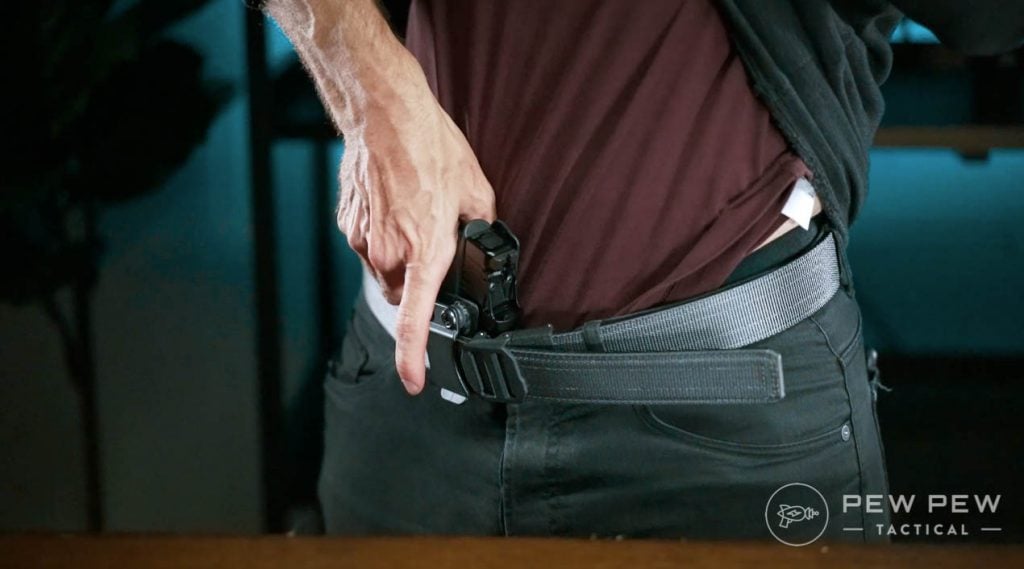
Yes, each state is different, and gun laws change frequently, but there are some commonalities in how you can find the info you need to stay legal. And we’re here to help!
In this guide, we’ll provide the insight and resources you need to track down your state’s gun laws, cover some common places that you can’t carry, and also throw in some legislative changes in 2025 you might want to know about.
So, keep reading!
Editor’s Note: None of this should be considered legal advice. Laws are subject to change, and it’s your responsibility to follow them.
Table of Contents
Loading…
Where Can I Carry A Gun?
Finding Your State’s Gun Laws
There are several resources at your disposal.
Our guides to state guns laws are a great place to start (although we’re updating these so check back if your state is under construction).
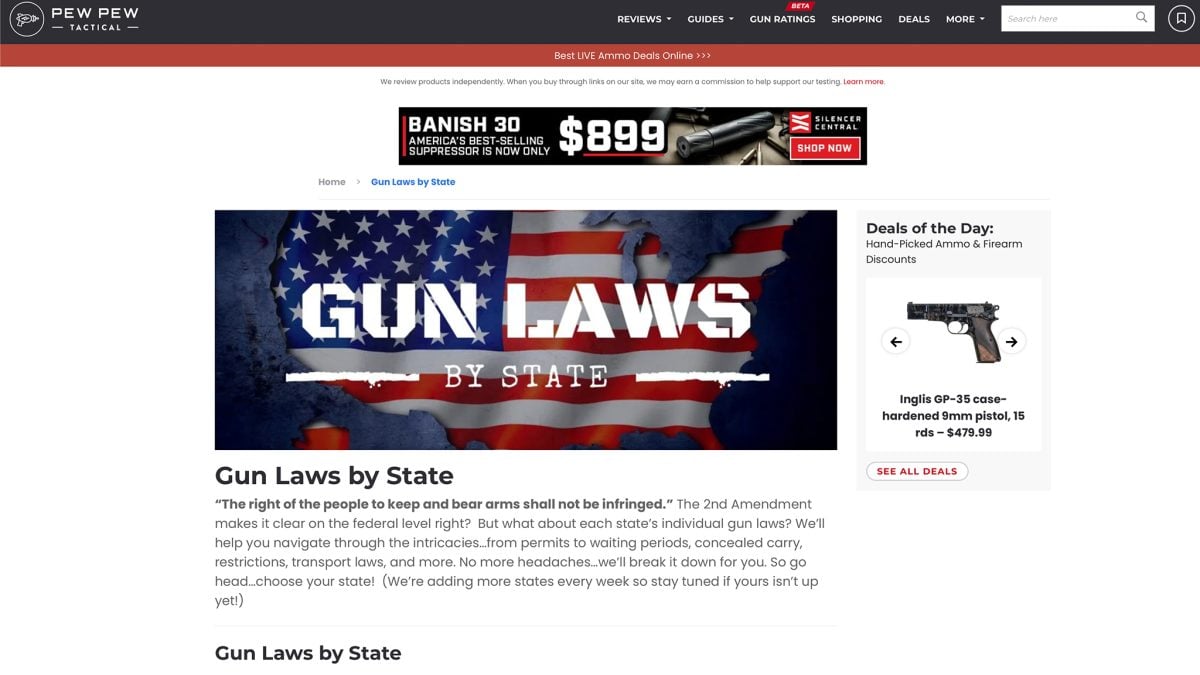
If you’re looking for something more specific, the internet has plenty of other sources.
State and Local Law Enforcement
In many states, the Department of Justice is the issuing agency for concealed carry permits. The state DOJ website should have the most current information on gun laws. Even if that’s not the issuing body, the website will likely point you in the right direction.
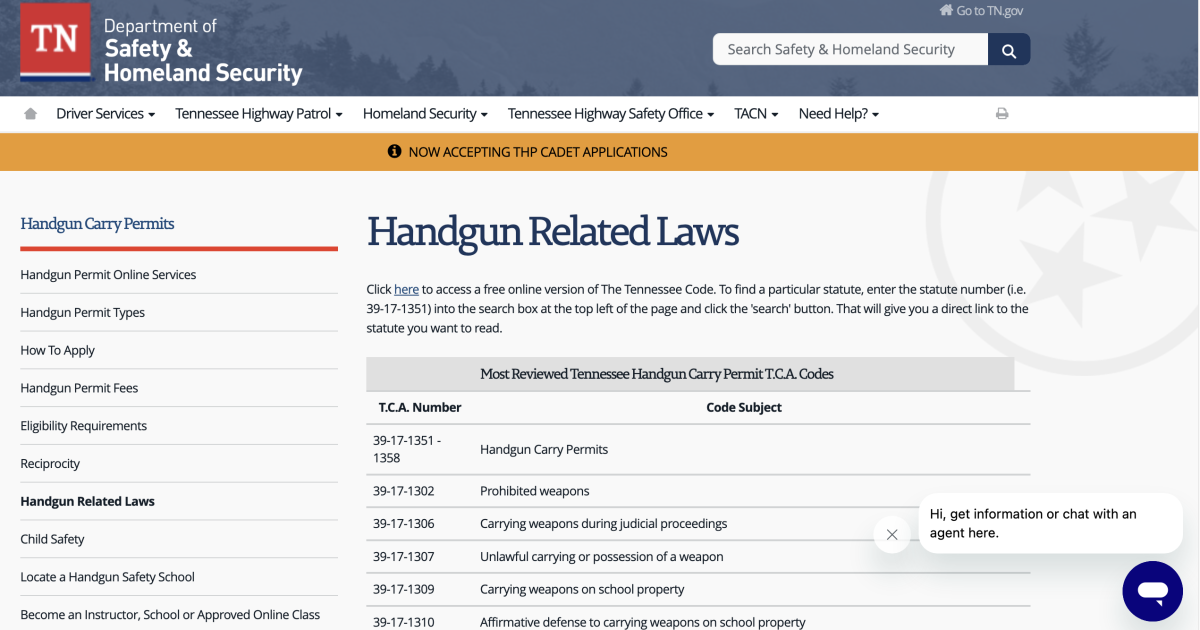
The state police issue permits in some states, like Michigan. In that case, the state police website will have all of the information, rules, and regulations regarding CCW permits.
Other states, like New York, designate the county sheriff as the authority for issuing your carry permit. While the state laws still apply, there are some counties and municipalities with additional laws.
ATF
Most gun laws are enforced at the state level, but some things are a federal issue.
Want to buy a suppressor? The Bureau of Alcohol, Tobacco, and Firearms (ATF) needs to sign off on that one, pal.
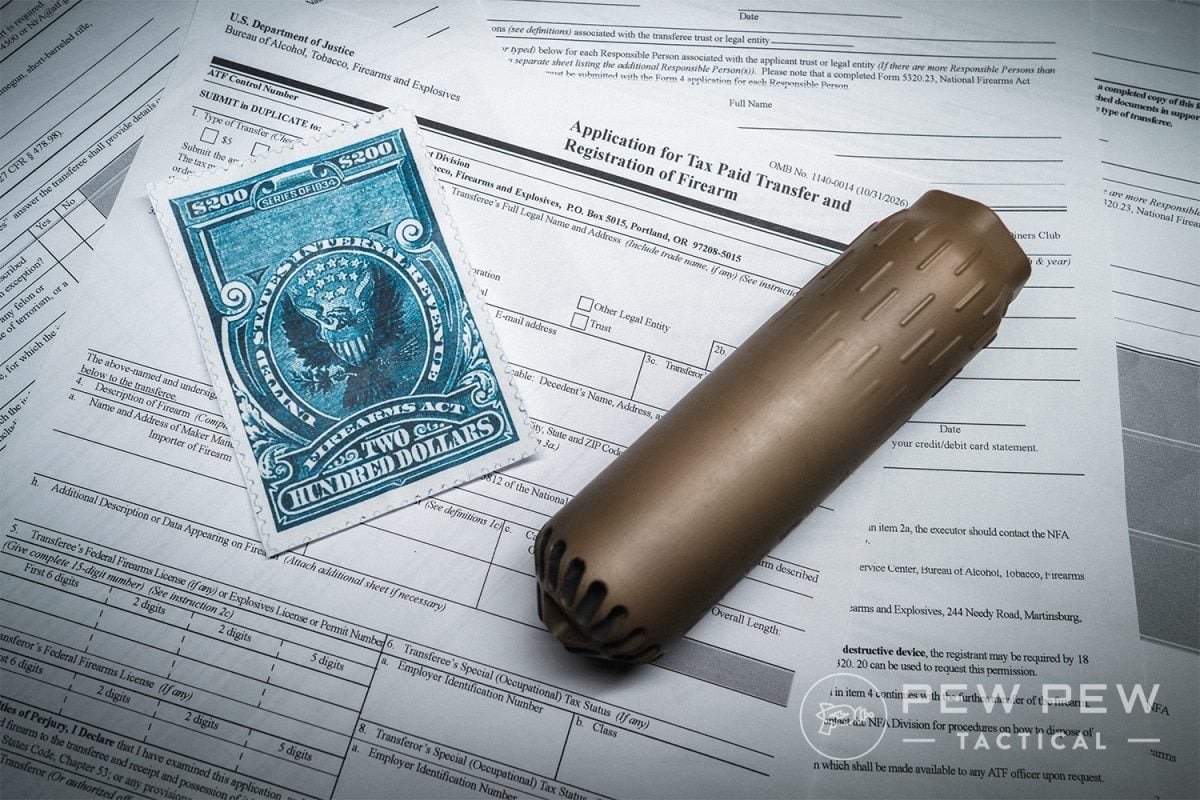
Fortunately, online suppressor retailers are making that process much faster and easier than it used to be. You can expect to get your application approved in about a week rather than about a year.
The same goes for buying a short-barreled rifle (SBR) or automatic weapons.
What Are Common Gun-Free Zones?
While every state has specific regulations on where you can and cannot carry, there are certain instances where you can be pretty sure guns aren’t allowed.
Schools are gun-free zones pretty much everywhere, although some universities are changing this. Does that apply to the parking lot, pickup line, and off-campus sports facilities? Find out before you pack heat where you shouldn’t.
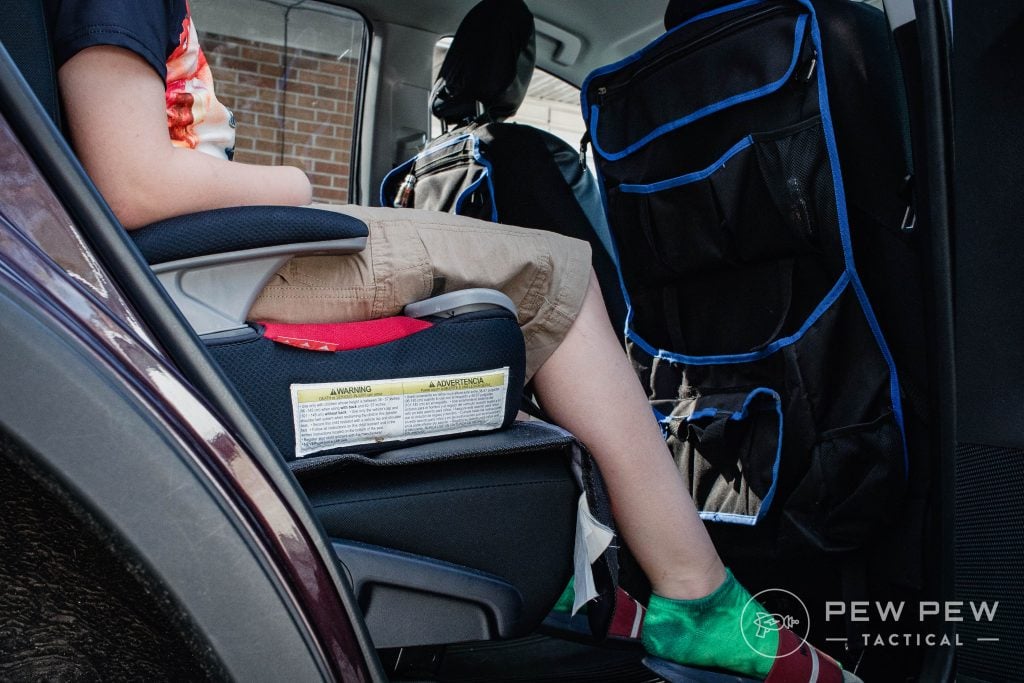
This typically extends to childcare facilities, even if they’re run out of a residence and you know the owner. Depending on your state’s laws, written permission from the daycare provider may give you the green light to carry.
Federal buildings are also gun-free zones. Your local post office, federal courthouse, and passport office are all federal buildings.
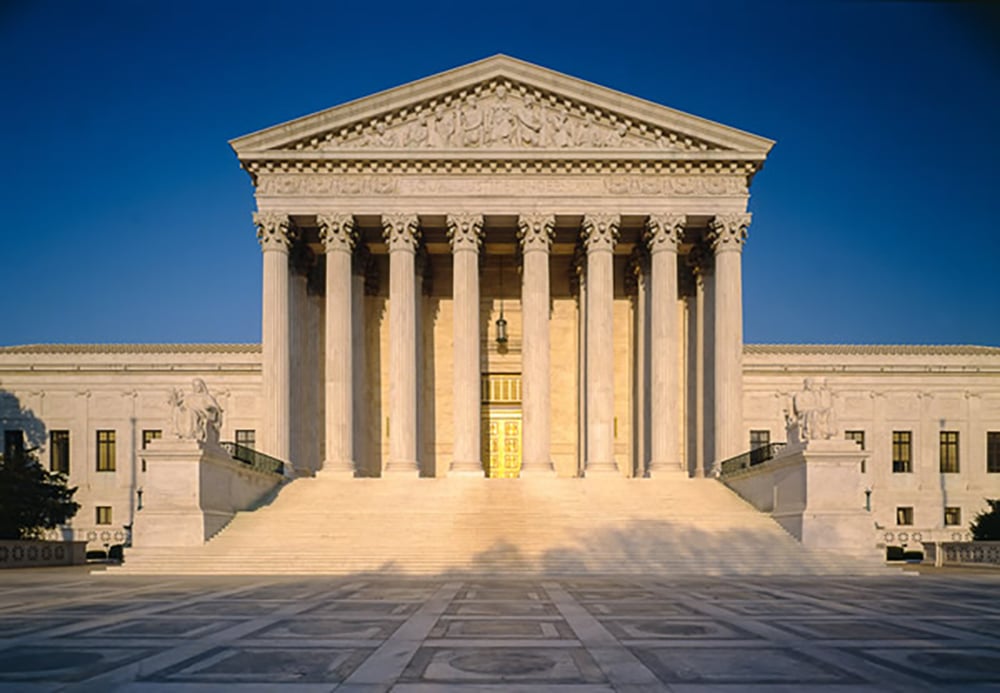
Other common gun-free places are courthouses, certain parks, and airports (though flying with firearms is legal if you do it the right way).
States vary on whether you can carry into a private business that displays a no-guns-allowed sign. In some states, any sign is enforceable; other states require a specific, state-sanctioned prohibition sign. In others, an employee can ask you to leave and press trespassing charges if you refuse.
What about places that serve alcohol? This is where state laws get really specific. Do some deep digging to make sure you understand the ins and outs of bringing a gun into a business that sells or serves alcohol.
Finally — and this one is counterintuitive — your home and car might be off-limits for concealed carry if you don’t have a permit. Some states issue CCW licenses but waive the issue when you’re in your residence or car; however, others treat those places just like anywhere else.
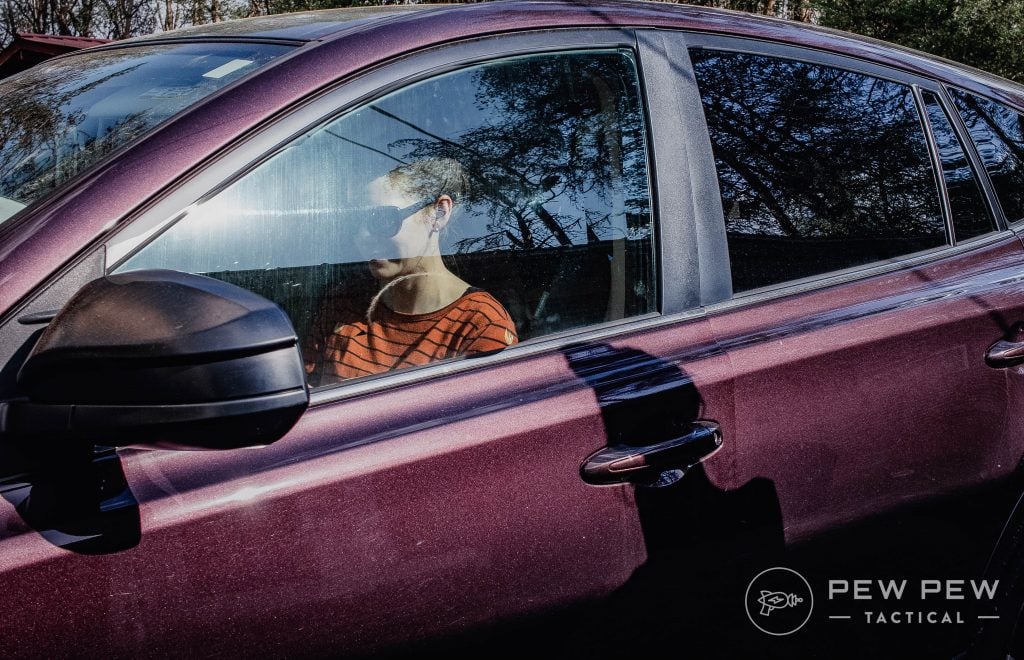
Once you get your license to carry, keep that baby on you any time you’re exercising that right. Consider it, your ID, and your pistol a package deal.
Constitutional Carry States in 2025
In a huge win for the Second Amendment, some states have constitutional carry laws in effect. Constitutional Carry, also known as permitless carry, means that the state does not require a CCW permit to carry a concealed handgun.
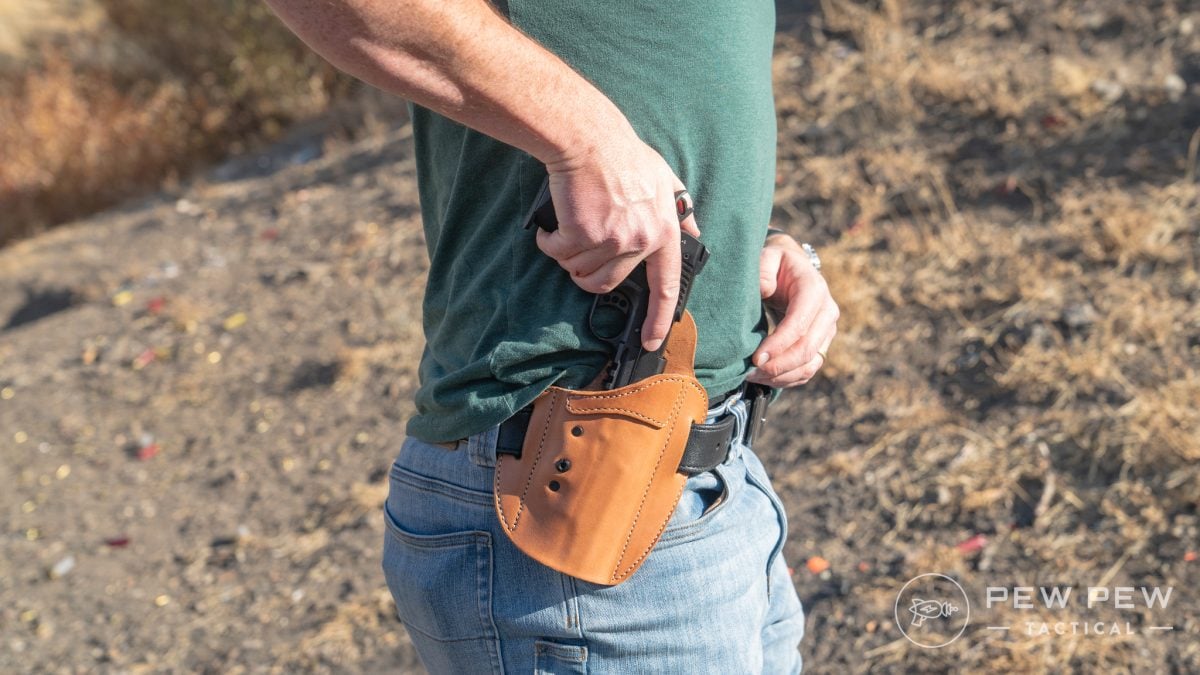
While it might sound like a free-for-all, make sure you…do your research. (Common theme, here!) Sometimes, permitless carry extends to everyone in the state, while other times, it just applies to residents of that state.
Even under Constitutional Carry, there will still be firearm-restricted areas.
Once again, do your homework before you learn the law from a judge who’s handing you a guilty verdict.
Recent Changes to Gun Laws (2025 Update)
If you follow our firearms news coverage, you already know that the rules we have to follow change by the day.
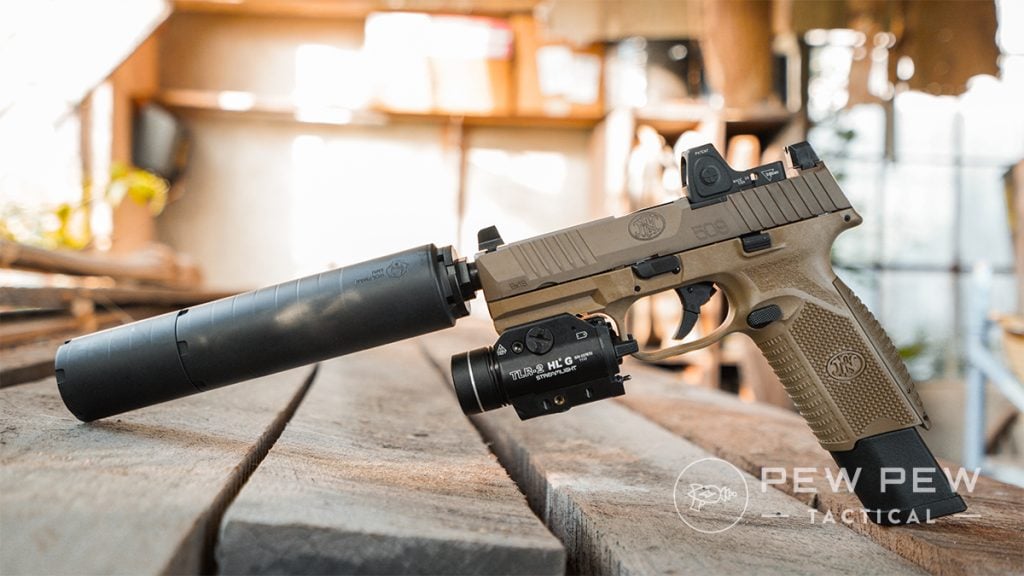
For example, the federal SHUSH Act, introduced in January 2025, would remove suppressors from the purview of the National Firearms Act. If it passes, all federal, state, and local restrictions on suppressors would become void.
In the February 2025 Reese v. ATF ruling, the Fifth Circuit Court of Appeals overturned legislation banning the sale of handguns and handgun ammunition to anyone under the age of 21.
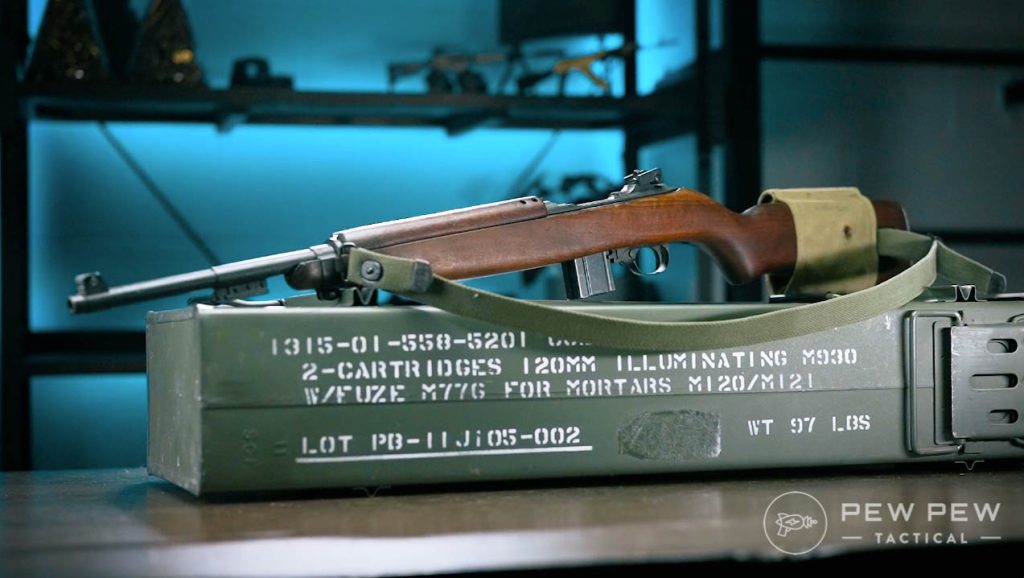
Meanwhile, up north, the Canadian government banned 179 firearm models in March 2025, bringing the total to more than 2,500.
Final Thoughts
Where can you legally concealed carry a gun in your state?
- Check your state’s laws or CCW permit requirements regarding where you can carry
- Research local no-carry guns near you (places like primary schools and federal buildings are gun-free zones)
- Stay up-to-date on federal and state regulations that might impact state laws
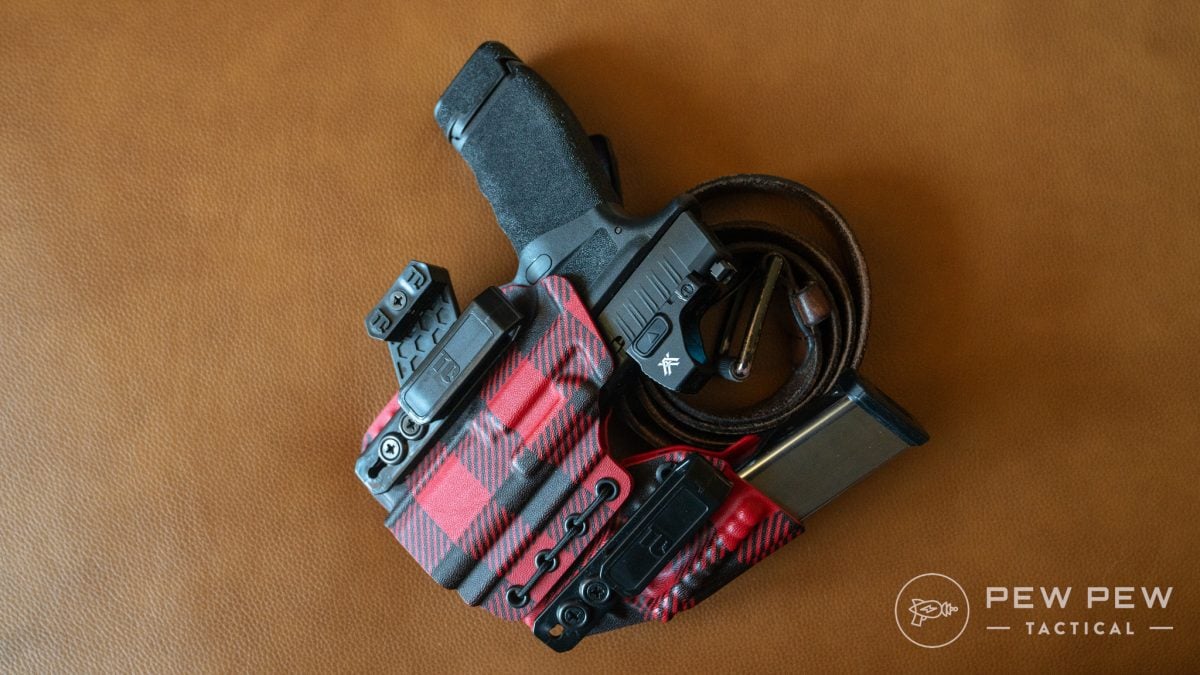
Are there any weird laws in your state? Let us know in the comments. If you’re ready to start carrying concealed, check out our guide to the Best Concealed Carry Guns Under $400!
Latest Updates
March 2025: Removed section on weird state laws. Added information on constitutional carry and firearm legislation news.

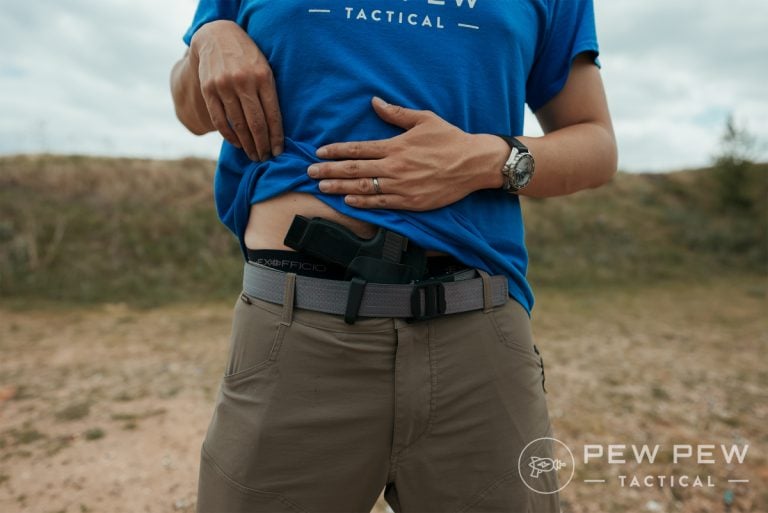







20 Leave a Reply
"Guns OK in post office parking lots, federal judge rules"
posted on CNN web /2013/07/11/us/guns-post-office/index.html
"When States pass “Constitutional Carry” laws, they are based on provisions IN THEIR STATES’ CONSTITUTION that refer to the RIGHT to carry IN THAT INDIVIDUAL STATE – NOT on the Second Amendment to the US Constitution.
Since those State Constitutions are each written differently, SOME states interpret that RIGHT to apply ONLY to THEIR OWN citizens, while other states – such as West Virginia – extend that right to ANYONE age 21 or older who either legally resides in the US or is a US Citizen AND is not prohibited by either FEDERAL or STATE Law from possessing a firearm (yet there ARE state carry permits they do NOT recognize – an oddity that MAY get corrected in a future legislative session).
Personally, I’d like to keep the FEDS fingers OUT OF the ‘reciprocity cookie jar’ – one only has to look at the ‘reciprocity mess’ the US Department of Transportation has made of commercial drivers licenses, regulating who can drive with what, where, for how long and introducing expensive layers of useless bureaucracy."
If a company bans a person from carrying a weapon....do they then accept the financial responsibility if a person is injured by an individual (gang banger for instance) who injures me which keeps me from taking care of my family?
Well, since you’re going to cheap shot the guy on grammar Joe, maybe you ought to capitalize the first word of your first sentence? Just say’n…
A neighbor taught me a LOT about gun safety. He could read and write and do basic math. He definitely wasn’t brilliant, and made grammar mistakes. But apparently you think he’d be “under qualified” to carry a gun, because of this?
You should reference CT PA 98-129 re. revisions to eligibility to carry a firearm on school grounds in CT. In PA 98-129 the wording was changed and the qualifier of holding a carry permit was struck from the wording - other qualifiers have also been removed or revised since the writing which you’ve referenced
Cook county has an assault weapons ban but an IL CCL is valid for the entire state. http://www.senategop.state.il.us/Portals/0/14%20Concealed%20Carry%20v4.pdf
I have a free app on my iPhone, "Legal Heat," which is pretty handy for both local laws and for traveling CCW across state lines.
not free... requires payment and a renewing subscription
https://www.nps.gov/grca/learn/management/upload/Firearms-in-IMRparks2-2010.pdf
"Congress approved a new law allowing loaded rearms in national parks starting Feb. 22, 2010. That means people can openly carry legal handguns, ri es, shotguns and other rearms and also may carry concealed guns as allowed by state statute."
West Virginia just passed laws allowing any resident of the state to carry concealed without a permit.
The North Carolina House recently did the same. However, I imagine it will get veto'd by the governor when it makes it to his desk.
This is why we need a national reciprocity law so that all the states have to accept an out of state license. I can drive my 3000-4000 pound vehicle (an instrument that kills way more people every year then guns) to any state. I bet the states raised the same questions of training and licensing requirements when that was first passed too, but they were forced to do it. We should be able to do the same with a CCW.
D.C. Is almost as bad
In Maryland no one gets a permit unless there is "a good reason" basically if you work in security. No one else can get them. If you have a gun in your car the ammo has to be stored as far away from the firearm as possible, it cant be within reach. You have to be going to the range or from the range, you will be arrested. No one ever talks about it but Maryland by far has the most unconstitutional laws in the country
Carry everywhere, all the time.
Also, National Parks are under the local state laws from what I understand: "In accordance with 16 USC 1a-7b, in any national park, a person may possess a firearm if such possession is in compliance with the laws of the State in which the national park area is located" (cited: https://www.colorado.gov/pacific/csp/colorado-gun-laws)
Thanks Dustin!
My understanding of Colorado Law is that you can have weapon in your car on school grounds/federal property as long as it is concealed and car is locked once you leave the vehicle.
The same goes for South Carolina. You can possess a firearm in you car (vehicle) as long as it is concealed, and the vehicle is attended, or locked.
I'm so happy to live in the free state of Indiana. Although it can sometimes be an issue traveling through the not-so-free state of Illinois to the west. While he was still the Governor, Mike Pence signed a law to allow for vehicle carry at schools provided you are either attending a school even(I.E. a football game), or dropping off\picking up someone at the school. Before, it was such a hassle to have to either go home to disarm or park off school grounds.